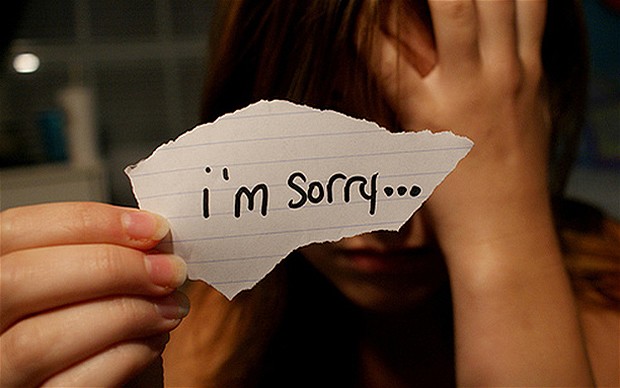Being the first one to apologize is hard and that is one of the painful truths of being in a relationship. This holds true when we feel wronged ourselves.
But if we want our relationships to survive, apologies are in order. Not only is saying sorry important to maintaining a healthy relationship but it also contributes to your well-being. It’s better to err and apologize than to unrealistically hope the problem will just go away by itself. Here are the top five situations when you should own up to your mistakes:
Situation 1: It’s obviously your fault
When it’s your fault, you need to own up to those who have been offended by your behavior. Acting like nothing happened would only make things worse. Admit that your behaviour is not okay and offer your sincerest regrets for messing things up and perhaps making things uncomfortable.
Situation 2: Your partner is always the one apologizing
Fights during a relationship are normal but your partner shouldn’t be the sole person apologizing. Balance is essential in relationships and by never initiating an apology you’re implying that you are always right. If this happens too often, your partner might come to view your relationship as quite costly and subsequent apologies might seem too little, too late. Say sorry as soon as after the conflict as possible and own responsibility for the things you may have said during the conflict no matter how right you are.
Situation 3: You continuously ridicule or embarrass someone in public
Between friends, this might be just be part of your friendly banter but when it becomes too much, it takes a toll on someone’s self-esteem. You’ll know you’ve crossed boundaries when the other person has shrank back, grown quieter or winced. When this happens, admit your mistake of making the other person feel belittled and you feel bad for doing so. Ask what you can do to make amends.
Situation 4: You lied
Unlike all the mistakes which were previously mentioned, telling lies is in a niche all by itself because of its nastiness. Aside from doing something you should or shouldn’t have done, lying to cover it up magnifies the transgression. When this happens, tell the person you’ve lied to that you have wronged them in two ways – by doing them wrong and by lying.
Situation 5: You didn’t keep your promise
Part of the social contract we have with other people involves keeping our word and we are counted on to do what we said we’d do. When you don’t keep your word, you’re breaking someone’s trust in you and it becomes an even bigger deal when you don’t see the impact of your actions. Apologize and understand that you may have been inconsiderate and disrespectful of another person’s time.
Knowing when to apologize is one of many ways to keep your relationships healthy and your life clutter-free. If you need professional help dealing with other relationship problems, get in touch with Rebecca Ginder, one of South Florida’s top therapists. Click here to schedule an appointment.





